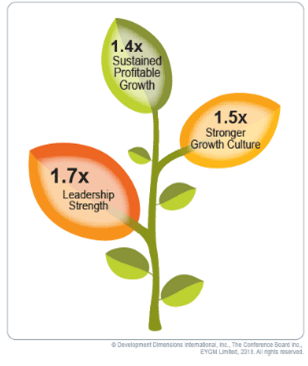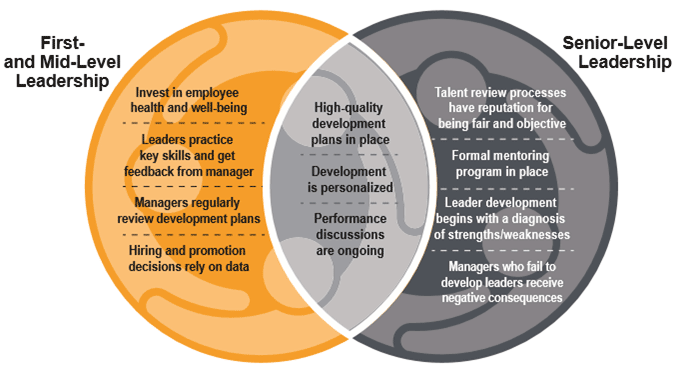by Verity Creedy
International Women's Day, which fell this year on March 8th, generated some incredible media coverage, with one of my personal highlights being Emma Watson's beautiful jacket emblazoned with the words, "Girls just want to have fundamental human rights."
International Women's Day 2018 got people talking about rich and inspiring topics associated with equality, diversity, and what awaits future generations. But there was also discussion of … quotas (Note: a growing number of countries—not including the U.S.—have government-mandated quotas to drive more balanced gender representation on company boards).
Like the moment you miss your bus by seconds, just fail to answer the phone before your voicemail kicks in, or discover you don't have one more chocolate left to eat, the subject of quotas was a wet blanket that dampened an otherwise vibrant and positive conversation.
Energy quickly deflated. Sigh.
It wasn't just on March 8th that a discussion of quotas bummed me out. Let me tell you about my study on this topic. I spent some time in the U.S. shortly after Barack Obama was elected president and enjoyed conducting very unscientific research by asking taxi drivers about their perspective on the impact their new president would have on the country and on international relations.
A decade later, with the #MeToo movement being such a hot topic, I am working on a new, equally unempirical study: When I visit a client, I ask the welcome team (receptionists, security staff, etc.) why they believe their company is striving to have more women in leadership. The result? About 65 percent list "to meet the quota" as either the first or second reason. Again, sigh.
Adherence to the hailed board gender quota, which so many businesses strive to achieve, is sometimes for moral accomplishment but frequently it's for public reporting purposes. Unfortunately, many people challenge the effectiveness of quotas even when they are met. As The Economist stated earlier this year, "While quotas have not been the calamity that many had feared, they have also so far failed to achieve what governments had promised they would."
Let me be clear, it's not that I dislike quotas. If they get more women onto corporate boards (currently just a quarter of board members are women), or encourages fair pay (EU women earned 84 cents for every euro a man makes per hour), then I am in. If it puts the topic firmly on the table and pushes for different behavior, then great.
What worries me, though, is what motivation often sits behind this behavior. Pushing for diversity to hit a reporting number does not, in my opinion, fully realize the promise of the significant organizational benefit of having more women in leadership.
Dr. Sam Collins, award-winning women in leadership expert, and named one of the Top 200 Women to Impact Business & Industry by Her Majesty the Queen, considers this point further:
"Quotas are like any business goal and strategy, when done well they can reap wonderful rewards for employees, shareholders, and customers alike. They serve a useful purpose as they encourage many organizations that would never normally give diversity a second thought the motivation to do something about it. Once women are in more positions of power and have a seat at the table of influence, then cultural and systemic change can follow."
So, to relegate "the quota" further down the list of why organizations should strive for more women in leadership and to promote the cultural and systemic benefits further up the list, let me provide just a few compelling advantages…

- Financial Performance: DDI research highlights that organizations with better financial performance have more women in leadership roles, and while that is all well and good, with multinational organizations having a shorter lifespan these days, what is almost more beneficial is the data showing that diversity-leading organizations are 1.4 times more likely to enjoy sustained profitable growth.
- Inclusion Culture: Having different perspectives is critical to success in creating new products, efficiencies, or solving problems. Gender-diverse organizations also enjoy higher levels of collaboration across the matrix, making them 1.5 times stronger as a growth culture.
- High Quality Development: Would you like to increase your leadership strength by up to 1.7 times its current state? Then leverage diversity in leadership, as DDI's data shows that these leaders are more likely to focus on personal development, encouraging a better quality of development planning and conversations.
- Attract Future Talent: Millennials, who now make up the majority of the workforce, see diversity as just an entry ticket to what they really seek: inclusion, which they view as "a critical tool that enables business competitiveness and growth." As you work to attract the very best talent to give you a competitive edge, having this culture of inclusion will be essential. If they cannot see it in your organization then they will go elsewhere.
- Integrity: A Zenger Folkman study identified the mean percentile of women displaying "high integrity and honesty" in leadership positions as being higher than that of men. This is important, not just because "integrity" is so often a top value listed by organizations, but for the way in which leaders are behaving and modelling how to interact with others, and increasing followership during times of constant change and frequent ambiguity.

These are just a selection of benefits for having more gender-balanced leadership within organizations, and I hope you agree that it is a compelling list.
To many, the benefits are evident. For example, the UK Prime Minister Teresa May just recently stated that "making full use of women's academic achievements, experience, and talents would help boost UK productivity, to the benefit of our whole economy." Dr. Sam Collins says of these wider benefits that "Organizations that get diversity right are getting business right. Even those companies that start off with a 'tick box' mentality to diversity quickly realize the no-brainer benefits of improved innovative thinking."
So, please, discuss these "no-brainer benefits"—in the boardroom, around your dinner table, even on the train with total strangers. And, of course, you can massively pollute my unprofessional research by emailing the list to your company office welcome team.
Government-mandated quotas should not be the number-one reason women are placed in leadership positions!
Let's get people talking about this topic in the right way, in an authentic way. Because if "culture eats strategy for breakfast," then to truly inspire change let's help organizations be obsessed with the wider benefits of gender diversity, and not just the quota target.
Learn how DDI can help your organization accelerate and advance women leaders to ignite impact.
Verity Creedy heads up DDI's European sales team and is based in London. When she's not working with clients to identify talent solutions that address their business strategic aims, Verity can be found reading endless Bizzy Bear books with her young daughter, window-shopping at unusual shoe stores, and finding new ways to raise money for Cancer Research UK. If you have any Bizzy Bear favorites, shoe store recommendations, or fundraising ideas, please send them to verity.creedy@ddiworld.com
Topics covered in this blog

